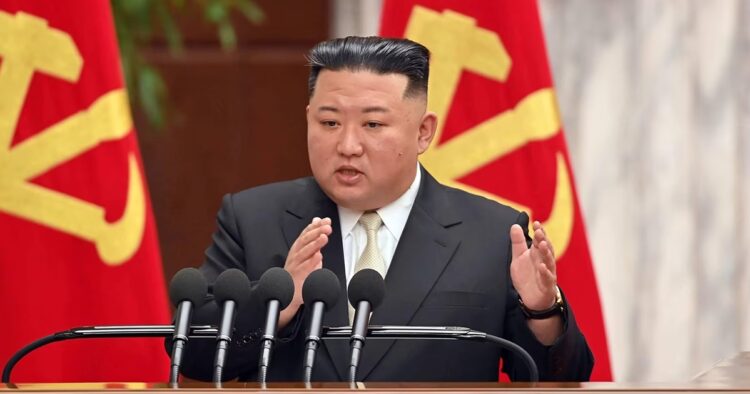In a recent meeting with army officers, North Korean leader Kim Jong Un issued orders to strengthen the country’s defenses, emphasizing the need to “thoroughly annihilate” the US and South Korea in the face of perceived military threats. Kim highlighted the urgency of enhancing the nation’s security, making reference to North Korea’s nuclear weapons program as the “treasured sword.”
During the meeting, Kim outlined plans to ramp up weapons tests in 2024, coinciding with the US presidential election later in the year. The North Korean leader expressed intentions to launch three military spy satellites, increase nuclear materials production, and develop attack drones as part of the country’s military expansion.
Kim’s remarks specifically addressed what he referred to as “hostile forces’ military confrontation moves,” signaling his readiness to mobilize all available means and potentialities to deal a “deadly blow” in the event of military confrontation or provocations against North Korea.
Experts suggest that the heightened tensions could lead to small-scale military clashes between North and South Korea along their heavily armed border. Additionally, North Korea is anticipated to conduct test-launches of intercontinental ballistic missiles capable of reaching the mainland US, along with the development of other major weapons.
The history of diplomatic talks between Kim Jong Un and former US President Donald Trump was also mentioned. The talks, which took place in 2018-19, ultimately fell apart after the US rejected Kim’s offer to dismantle a key nuclear complex in exchange for substantial reductions in sanctions.
Estimates regarding the size of North Korea’s nuclear arsenal vary, ranging from 20-30 bombs to over 100. While some experts believe North Korea faces technological challenges in developing nuclear-armed intercontinental ballistic missiles (ICBMs), the country’s shorter-range nuclear-capable missiles are already capable of reaching South Korea and Japan.
The developments raise concerns about the stability in the region and the potential for escalating military actions, casting a shadow over diplomatic efforts and regional security.

















Comments